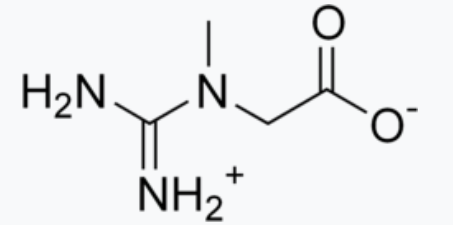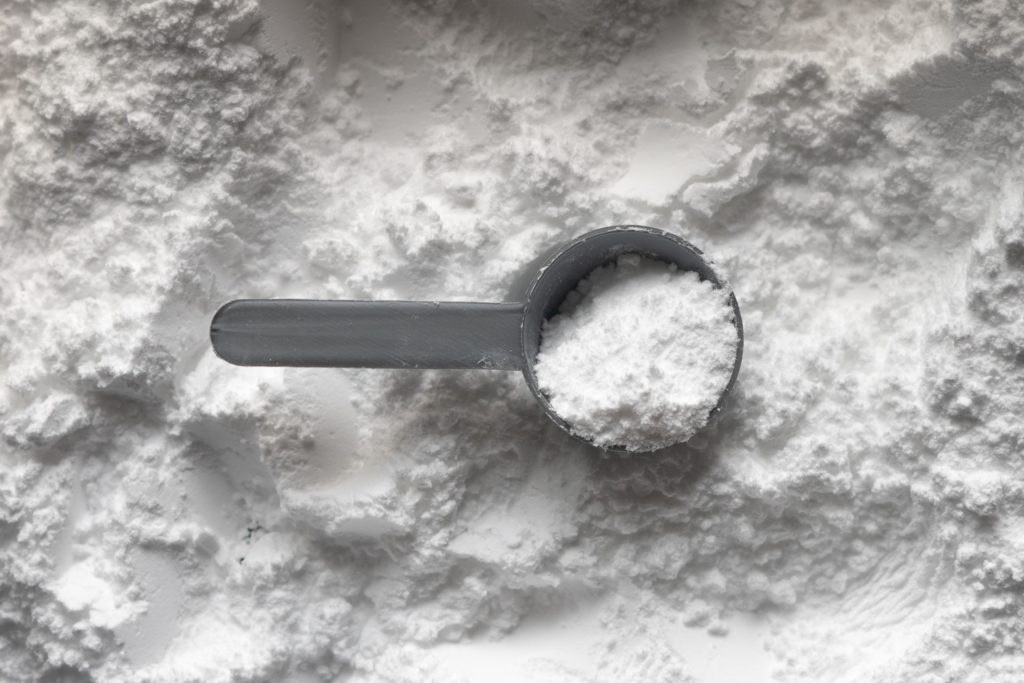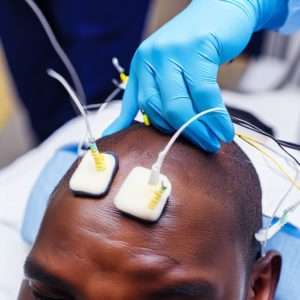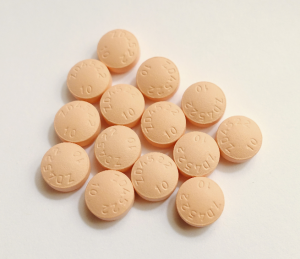Creatine for Depression

Creatine is a popular workout supplement. You often see big canisters of creatine powder in the supplement aisle with pictures of individuals with large muscles on the label. And it is popular for good reason. Research strongly suggests that creatine is effective for increasing energy production and performance during intense, short bursts of muscular activity (Lanhers 2017). However, recent research shows that creatine is also present in the brain. Over the last two decades, studies have been accumulating that suggest that creatine is not just helpful for muscle performance, but appears to play an active role in brain function as well.
What Is Creatine?
Creatine is an organic compound found in large quantities throughout the muscular tissues of the body. One of the primary functions of creatine is to help maintain energy production during intense demands. Inside the body’s cells, the main form of chemical energy is called adenosine triphosphate or ATP. ATP stores energy in three phosphate chemical bonds. When these bonds are broken, energy is released and used to perform work. ATP is a key component of muscle contraction.
Chemically, creatine can form a bond with phosphate yielding phosphocreatine. When ATP releases energy by losing a phosphate bond, it can be restored by phosphocreatine. Phosphocreatine is a quick way to restock energy levels when needed due to increased demands, like during weight-lifting exercises.
What Is the Function of Creatine in the Brain?
While most people focus on the function of creatine for intense muscular activity, creatine has other roles. The brain uses vast amounts of energy to sustain mental functions. As such, creatine plays a part of energy production throughout the brain and spinal cord (Andres 2008).
In both animals and humans with genetic defects that lack the enzyme for utilizing creatine, severe problems result. Human cases demonstrate developmental delays, seizures, autism and intellectual disability (Andres 2008). These problems with creatine processing make clear the necessity of creatine for brain function.
However, creatine appears to have other roles in the brain beyond energy production. Creatine has been shown to protect brain cells, helping to prevent them from dying when stressed (Andres 2005). This may be important for diseases like Alzheimer’s and Parkinson’s disease. Creatine also displays effects on reducing free radical activity and damage, which are also associated with degenerative diseases (Sestili 2011). There is even early evidence that creatine may function as a neurotransmitter, similar to serotonin and dopamine (Almeida 2006).
Creatine and Depression

Likely due to this constellation of effects, creatine appears to have potential for treating depression. One of the first human trials was a small study of patients with treatment-resistant depression. Eight patients were diagnosed with major depressive disorder and two with bipolar depression. Over the four weeks of creatine supplementation, depression scores decreased by almost half, shifting from severe to mild depressive symptoms (Roitman 2007). Notably, the two patients with bipolar developed mania or hypomania, indicating that creatine should be approached with caution in patients with a history of bipolar disorder.
The first randomized double-blind trial of creatine for depression included 52 women struggling with major depressive disorder. The patients were given standard medication with either creatine or placebo. After eight weeks of creatine supplementation, depression scores decreased by almost 80% with creatine as compared to just over 60% with medication alone (Lyoo 2012).
One of the most recent studies used creatine for bipolar depression combined with standard treatment in a trial of 35 patients. While improvements in depression scores did not reach significance, the number of patients who recovered from depression did. Of the treated patients, 67% went into remission with creatine as compared to 18% on placebo (Toniolo 2018). Over the course of the study, two patients switched into a manic episode with creatine supplementation, again showing that caution is warranted in bipolar patients.
Based on the available research, a recent review of creatine as a treatment for depression concluded that it may be useful as an antidepressant agent (Kious 2019).
Conclusion
While not all of the published studies found improvements for depression with creatine (Nemets 2013), the majority of the studies have (Kious 2019). However, most of the studies are small and further research is needed to clarify the best dose and the full efficacy of creatine on depressive symptoms. Considering how many people struggle with depression, additional safe treatments, like creatine, would be a welcome addition to mental health care.
Cautionary Note on the Contamination of Body-Building Supplements
Body-building supplements, including creatine, are some of the most often contaminated with pharmaceuticals, hormones or other dangerous additives, often in a misguided and illegal attempt to provide further athletic benefits (Crawford 2022). These substances can pose a serious risk to people taking these contaminated products. Always purchase creatine from a reputable company that has independent lab results verifying the purity of their products.



